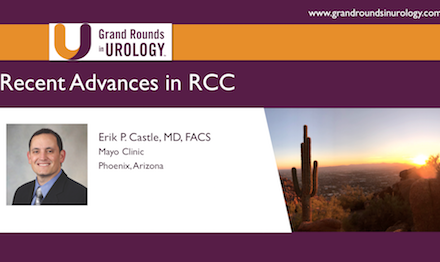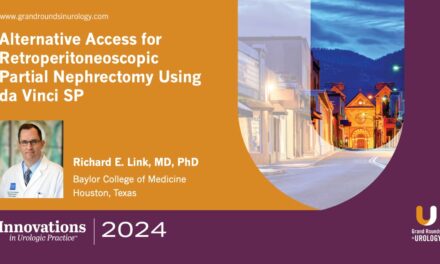
Deferred Systemic Therapy (DST) for Metastatic Renal Cell Carcinoma: Preliminary Prospective Experience
Abstract
Metastatic renal cell carcinoma (mRCC) is a heterogeneous disease. In a subset of patients with slow-growing metastases, systemic therapy (ST) may be deferred. Some retrospective data and one prospective clinical trial have been reported on deferred systemic therapy (DST) in mRCC. Using the Metastatic Renal Cell Cancer Registry (MaRCC) we report our preliminary data analysis on baseline characteristics and demographics and reasons for the treating physician’s management decision to defer therapy as the initial management decision.
MaRCC Registry enrolled 502 evaluable patients at 46 US academic (N=20) and community (N=26) sites from 3/24/2014 to 12/22/2016 and will include ≥ 3 years of follow-up. Eligible patients were age ≥ 18 years with a diagnosis of mRCC and no prior ST for mRCC at study entry. Patients not on ST but rather undergoing observation were also permitted to enroll on the registry. Key endpoints included treatment characteristics (e.g. agents, sequence, duration, reasons for therapy choice and discontinuation), treatment effectiveness (e.g. ORR, PFS, OS), quality of life, medication adherence, and health resource utilization. DST was defined as anything other than ST (e.g. active surveillance, local therapy, etc.) as the initial management decision. Descriptive statistics were used to quantify patient demographic and clinical characteristics. T-tests were used to test for significance between the reasons for choice of ST versus DST, and baseline patient reported outcomes (PRO).
As of the August 4, 2017 data cut off, mean and median follow up for the entire registry cohort were 9.9 and 8.5 months, respectively. At the time of data cut off, 208/502 (41%) patients had DST as the initial management decision: 73/208 (35%) patients had crossed over from DST to ST and 135/208 (65%) remained in the DST group. In the DST cohort: median follow up from screening and metastatic diagnosis were 9.5 and 17.6 months, respectively; median age 65 years (Q1-3 range, 58-74); 71% male; 30% ACAD; 81% clear cell histology; and 27% stage IV at diagnosis. Baseline demographic and clinical characteristics were similar between DST, DST-to-ST, and ST groups, except years between initial RCC diagnosis and enrollment (longer in DST group). The most common primary reasons for DST, as assessed by the treating physician, were active surveillance, disease present (37%); active surveillance, no evidence of disease following procedure (20%); and local therapy (13%). At baseline, PRO questionnaires demonstrated significantly better quality of life (FACT-G) and kidney cancer symptoms (FKSI-19) in the DST group compared with the ST group (both P<0.05), including among the FACT-G domains of physical, social and functional well-being (all P<0.05).
This is the largest prospective experience of DST in mRCC to date. In this preliminary analysis, with median follow up of 8.5 months, 135/502 (27%) of treatment-naïve mRCC patients remained on DST. As this data matures over time, future planned analyses in the DST cohort will include outcomes (PFS, OS, time to systemic therapy), longitudinal PROs, prognostic modeling, and biomarker studies.
Authors: Harrison, Michael R. | Costello, Brian A. | Bhavsar, Nrupen A. | Vaishampayan, Ulka | Pal, Sumanta K. | Zakharia, Yousef | Jim, Heather | Fishman, Mayer N. | Molina, Ana M. | Kyriakopoulos, Christos | Tsao, Che-Kai | Appleman, Leonard J. | Gartrell, Benjamin A. | Hussain, Arif | Stadler, Walter M. | Agarwal, Neeraj | Pachynski, Russell | Hutson, Thomas E. | Hammers, Hans J. | Ryan, Christopher W. | Mardekian, Jack | Singh, Kanwarjit | Borham, Azah | George, Daniel J.
Journal: Kidney Cancer, vol. 2, no. s1, pp. I-S50, 2018




